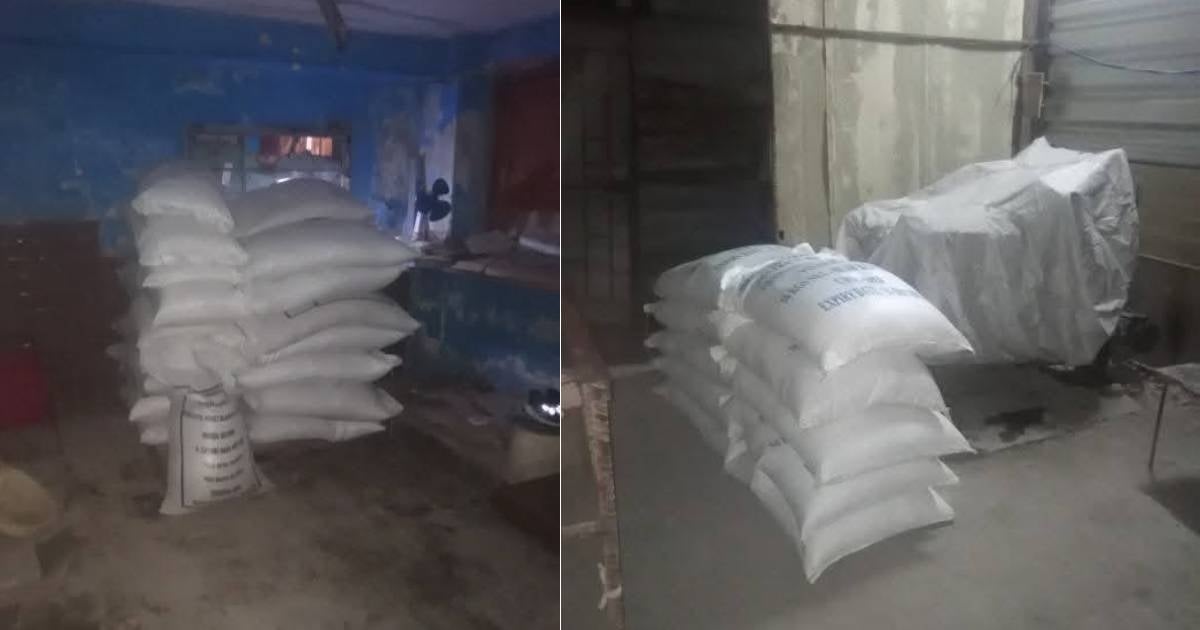Two managers from a store in San Miguel del Padrón were reportedly caught in the act while transferring sacks of rice and peas, which they allegedly stole from state-run warehouses. This information was shared by El Cubano Fiel, a Facebook page linked to the Cuban Ministry of the Interior (MININT).
According to the post, the incident occurred in the San Francisco de Paula neighborhood, where agents from the Revolutionary National Police, along with Commerce officials, intercepted the managers as they loaded basic goods into a vehicle. Authorities reportedly found 15 sacks of peas and 10 of rice inside the store, set aside for illegal extraction. Additionally, searches of the managers' homes allegedly uncovered another 14 sacks of rice.
The event supposedly took place in the Siboney area, near Calzada de Güines and Callejón Botica. However, the source provides no additional verifiable evidence or official confirmation beyond its own reports. The identities of the arrested individuals remain unknown, as does whether the case has been brought to court.
Propaganda or Genuine Report?
Publications like these are common on platforms such as El Cubano Fiel, which functions as a propaganda tool for the state's security apparatus. Often, the incidents it reports don't appear in official media nor are they confirmed by independent sources, leading to skepticism among citizens regarding the transparency and truthfulness of such accusations.
On social media, these claims often raise more questions than answers: Why aren’t the involved parties prosecuted with public evidence? Why are there no official statements from the Ministry of Commerce or the Prosecutor's Office? Is this a tactic to distract or shift public outrage towards lower-level members of the system?
Ongoing Food Distribution Issues
Food distribution in Cuba remains a highly sensitive topic. Chronic shortages, rationing, and corruption within the store network cause ongoing discontent among the populace. The idea that those responsible for fair distribution are involved in diverting supplies exacerbates the crisis and further demoralizes an already weary population.
In response, the regime has launched initiatives like Guardianes por mi bodega, branded as "community" solutions to prevent theft and enhance surveillance. These efforts, however, depend on typical Cuban social control mechanisms: extended hours, WhatsApp groups among neighbors, surprise inspections, Communist Party mobilizations, and neighborhood watch systems.
The initiative started in Holguín, where 13 store crimes, including 11 break-ins, were reported. Local authorities promised to implement electronic cash registers to reduce cash handling, open Telegram channels, and strengthen ties with the community.
Nonetheless, many Cubans believe these campaigns merely mask deeper issues: internal corruption, a lack of transparency, and a collapsed distribution system.
Key Questions About Corruption in Cuban Bodegas
What evidence exists regarding the alleged theft by the managers?
The evidence is primarily based on reports from El Cubano Fiel, which has not provided verifiable proof or official confirmation from independent sources.
Why is there skepticism about the transparency of these reports?
There is skepticism because such incidents are often not covered by official media, nor are they verified by independent avenues, leading to doubts about their authenticity and transparency.
How are Cuban authorities responding to the issue of theft in bodegas?
Authorities have initiated campaigns like Guardianes por mi bodega, utilizing community surveillance methods, but these are seen as superficial solutions that don't address the root causes.
